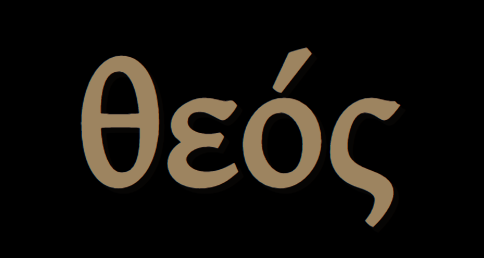Podcast: Play in new window | Download
Subscribe: Spotify | Email | RSS

In this final part of his follow-up podcast pastor Sean Cole argues that in the New Testament the Son and the Spirit of God are as divine as is the Father. In his view the New Testament rather obviously implies that the one God is the Trinity.
About the Son, he argues that in various passages he is called “God over all,” “our Great God and Savior,” and “the true God.”
I respond, critically weighing the evidence.
About the Holy Spirit, he argues from John 14, in which God’s spirit is spoken of in personal terms, as a “he” and a “Helper.”
Does all of this, including what he argued in the previous episode, amount to a strong case that New Testament theology is trinitarian and not unitarian? What is your evaluation?
Links for this episode:
- Romans 9:5; 1 Corinthians 11:3; 1 Corinthians 15:28; Philippians 2:9-11; 2 Corinthians 4:4; John 10:34-36; Hebrews 1:8-9; John 1:14; Philippians 2:5-11; Revelation 21; 1 John 5:20; John 14:16-17; Ephesians 3:14-19; Ephesians 1:1-3; Ephesians 1:17; 1 Corinthians 8:4-6; Ephesians 4:4-6.
- podcast 284 – Does the Bible Teach that God is a Trinity? Cole-Tuggy Dialogue – Part 3
- podcast 283 – Does the Bible Teach that God is a Trinity? Cole-Tuggy Dialogue – Part 2
- podcast 282 – Does the Bible Teach that God is a Trinity? Cole-Tuggy Dialogue – Part 1

- podcast 260 – How to Argue that the Bible is Trinitarian
- podcast 189 – The unfinished business of the Reformation
- podcast 224 – Biblical Words for God and for his Son Part 1 – God and “God” in the Bible
- morphé
- a reading of Philippians 2:5-11
- podcast 264 – Tuggy vs. Date debate – Jesus is human and not divine – Part 2
- podcast 263 – Tuggy vs. Date debate – Jesus is human and not divine – Part 1
- podcast 145 – ‘Tis Mystery All: the Immortal dies!
- allos
- trinitarian or unitarian?
- Murray Harris, Jesus as God
- podcast 253 – The Apostle Paul a Unitarian
- weasel-talk about early Christianity and the Trinity
- podcast 176 – Photinus of Sirmium
- “I Like Big Bibles”
- Unitarian Christian Alliance
- podcast 281 – Introducing the Unitarian Christian Alliance
- This week’s thinking music is “The Laundry Cycle” by Jesse Spillane.

Dr Cole’s favorite word throughout his presentation is essence. Take that word from his vocabulary and I don’t think there are the biblical words to describe his trinitarian beliefs. To call the Holy Spirit a person is like calling an angel a person. If the Holy Spirit is a person, and Jesus was conceived by the Holy Spirit, that would make the Holy Spirit Jesus’s father, not God the Father.
I have a question, sorry if this is not related
Can you give me bible verse(s) where there’s a man who calls the unexisted being(man or angel) “my lord”?
Ps: except psalms 110 1, matthew 22:42-46, mark 12:35-37, luke 20:41-42 and acts 2:34-36
Good series Dale, thanks! The thing that really stood out to me in the whole series was how Dr. Cole kept talking about his exegesis of the text. But what was obvious to me was that he didn’t really provide any exegesis. Having assumed the validity of the Trinity of the orthodox creeds he simply interprets any particular passage of scripture to fit. That is not exegesis! Exegesis involves looking at all possible meanings of a passage and then through analysis of the grammar, context, cultural considerations, etc. determine what is likely the best interpretation. I didn’t hear him do anything like that.
Dr. Cole should write you a thank you letter for exposing and correcting his really poor interpretations of those texts.
Obviously his interpretations are based on “reading in meaning” from a presuppositional Trinitarian bias and not “extracting meaning from” the whole context.
This is a valuable example for illustrating the correct approach to interpreting the Bible, and how interpreting it wrong leads to error. Dr. Cole should be willing to admit his views on the scriptures he quotes as proof texts are not fully compatible with the context or the rest of scripture.
Comments are closed.